Abstract
The prevalence of iron deficiency anaemia among Swedish women of child-bearing age has fallen markedly since the mid-1960s. At that time, population studies in Göteborg and Uppsala showed that iron deficiency anaemia was present in about 25-30% of women. Later, in population studies in Göteborg in 1968-69 and 1974-75, the prevalence in the same age group was found to have fallen to 6-7%. Several factors may explain the improved iron status. The level of iron fortification of flour was increased from 30 mg/kg of flour in 1943 to 65 mg in 1970, this increase adjusting the iron intake to compensate for the lower energy requirement and expenditure of present-day living habits. There has also been a marked increase in the intake of iron tablets and of tablets containing ascorbic acid.
An analysis of various factors indicates that the 20-25% improvement in iron status can be accounted for by increased use of oral contraceptives (3-4%), the impact of increased iron fortification (7-8%), the widespread use of ascorbic acid supplements (3%), and greater prescribing of iron tablets (10%).
This analysis of the factors leading to the marked reduction in the prevalence of iron deficiency anaemia among Swedish women may be useful to public health planners in other countries with similar problems. Our results indicate that several factors need to be considered when planning controlled field trials and evaluating the results obtained. The methods used to analyse the impact of different factors on the reduction in iron deficiency can also be used to predict the effects of various public health measures on the iron status of a population.
Full text
PDF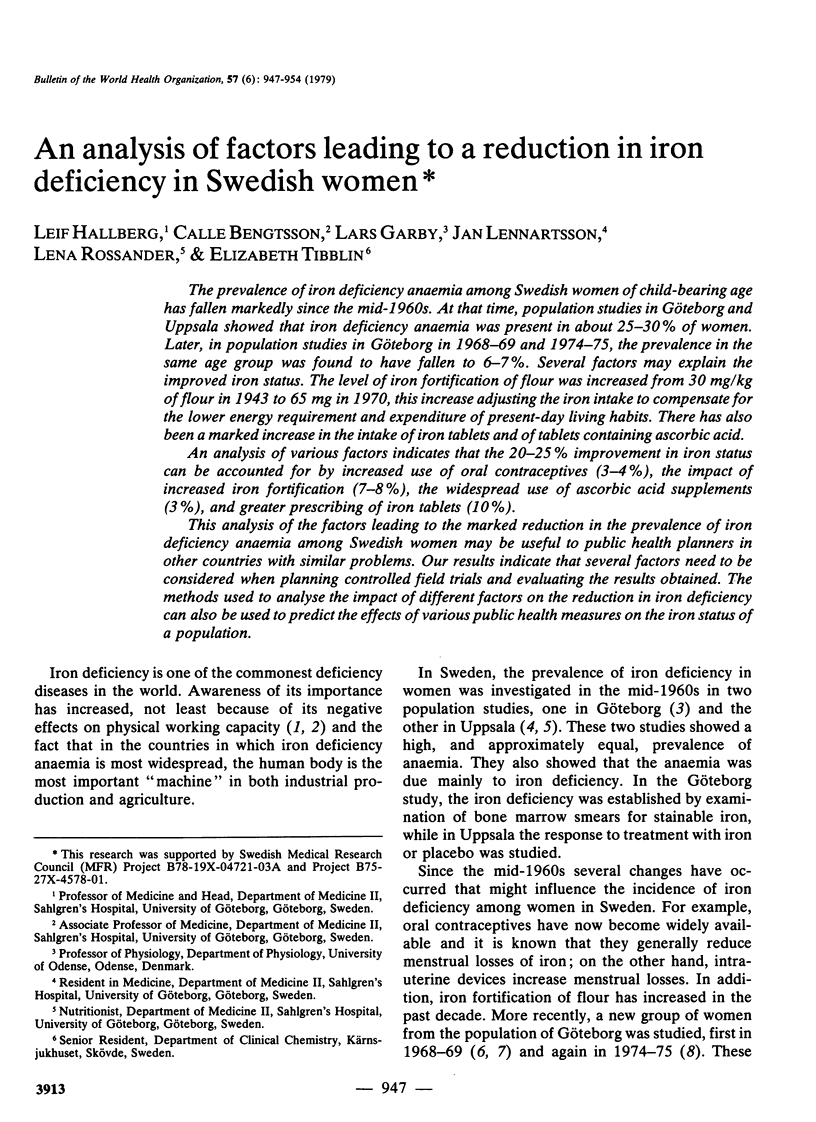
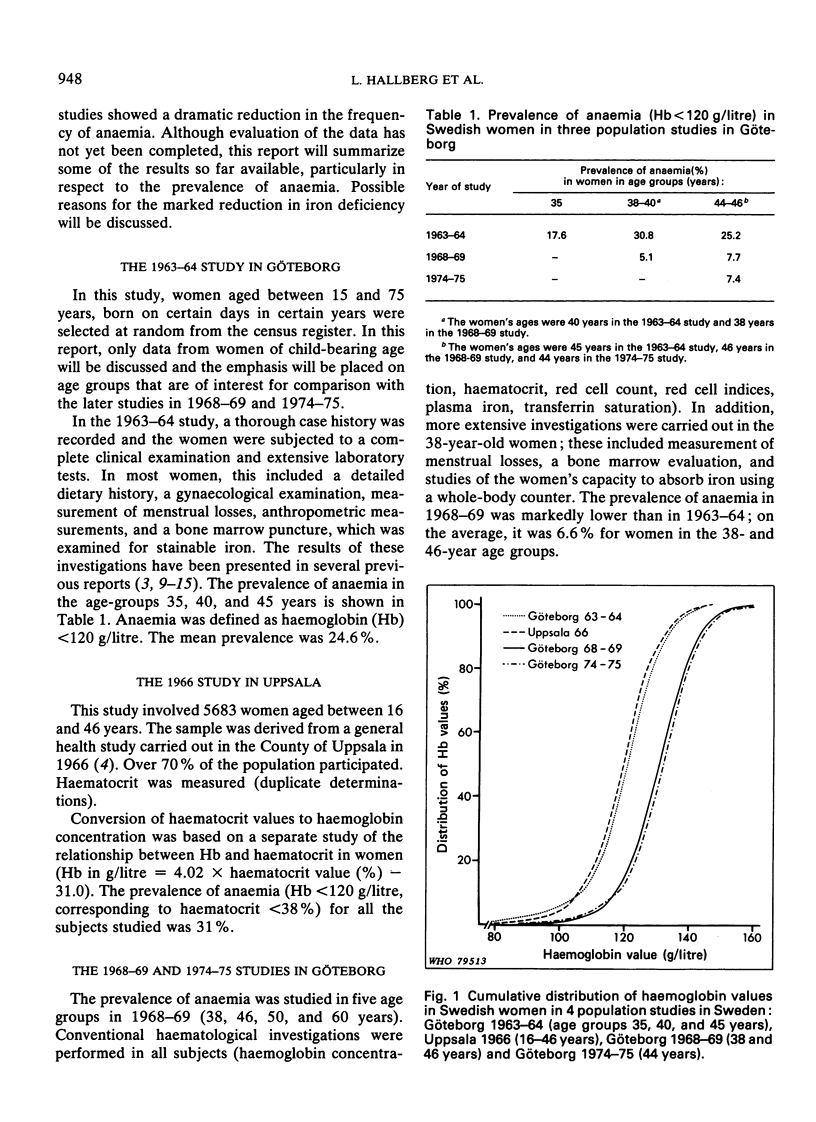
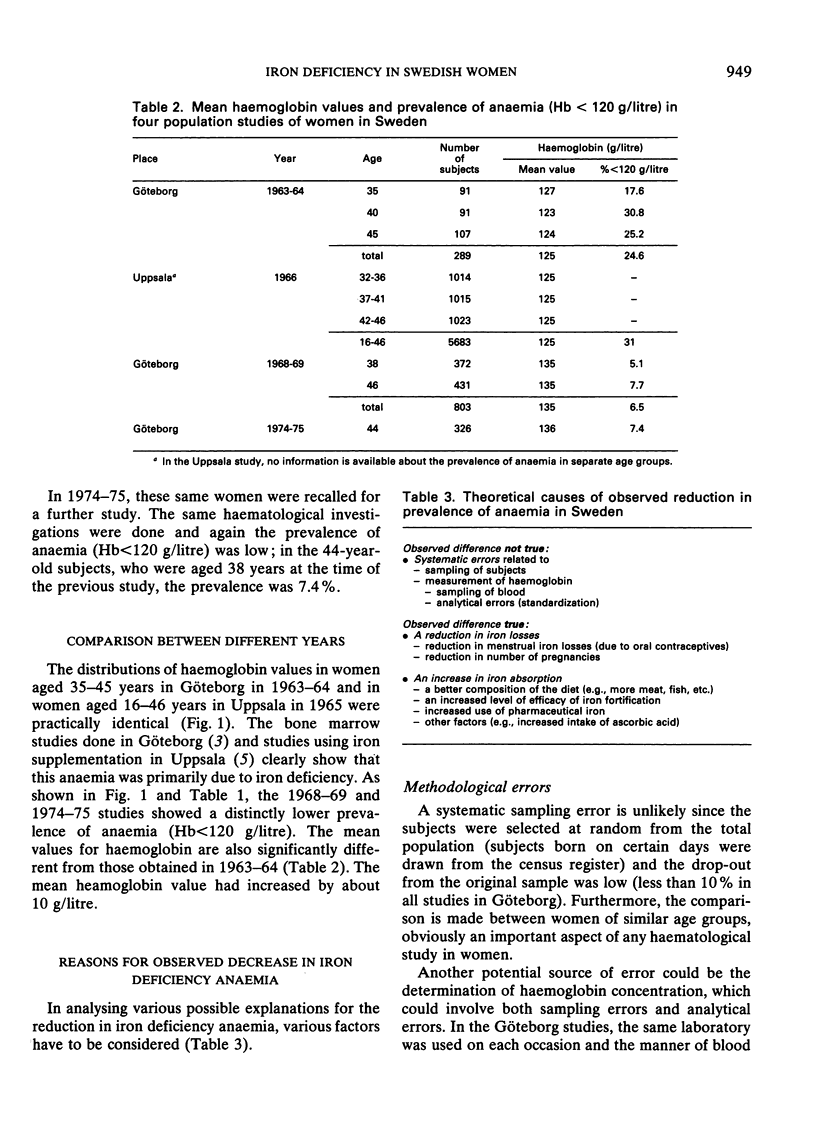
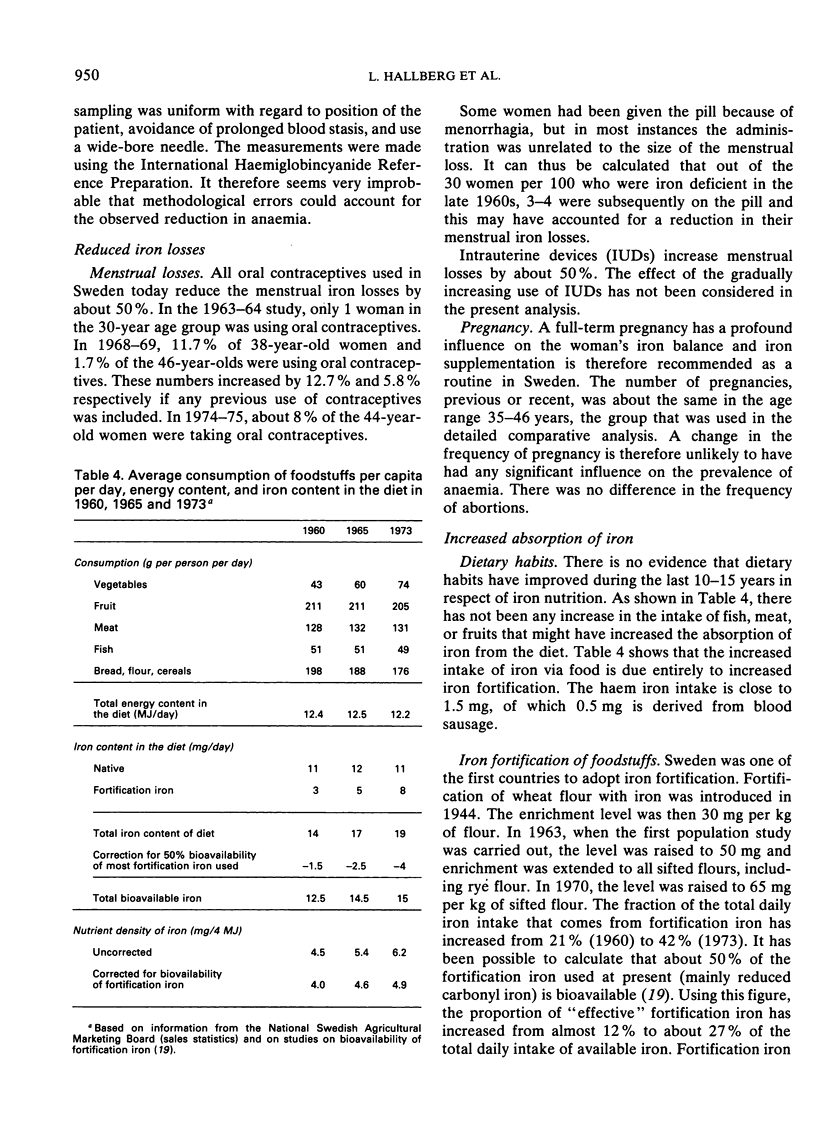
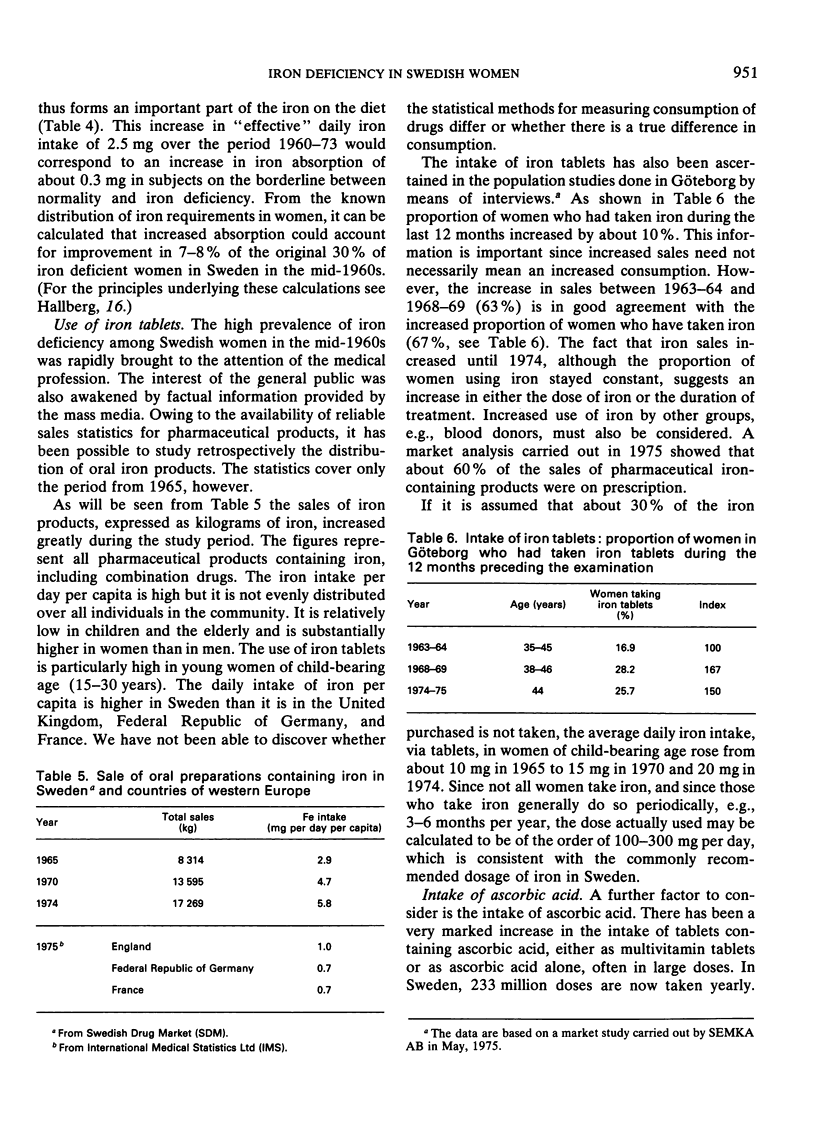
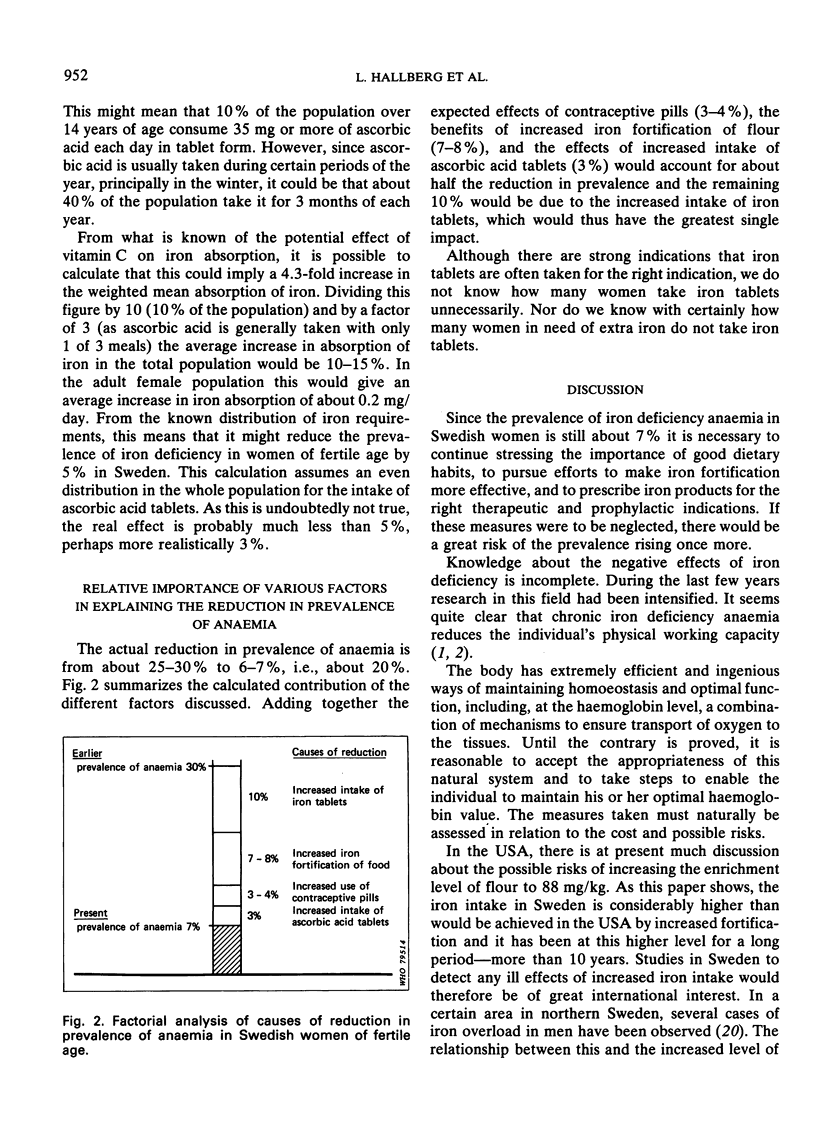
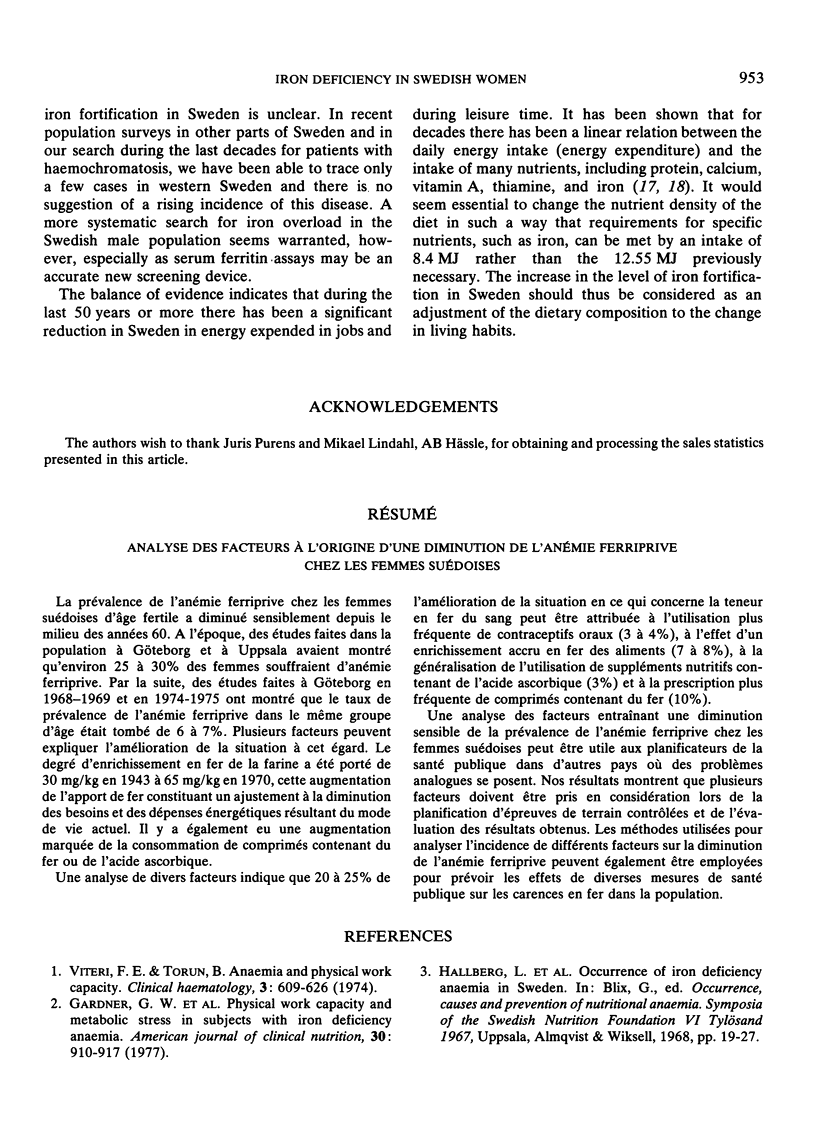
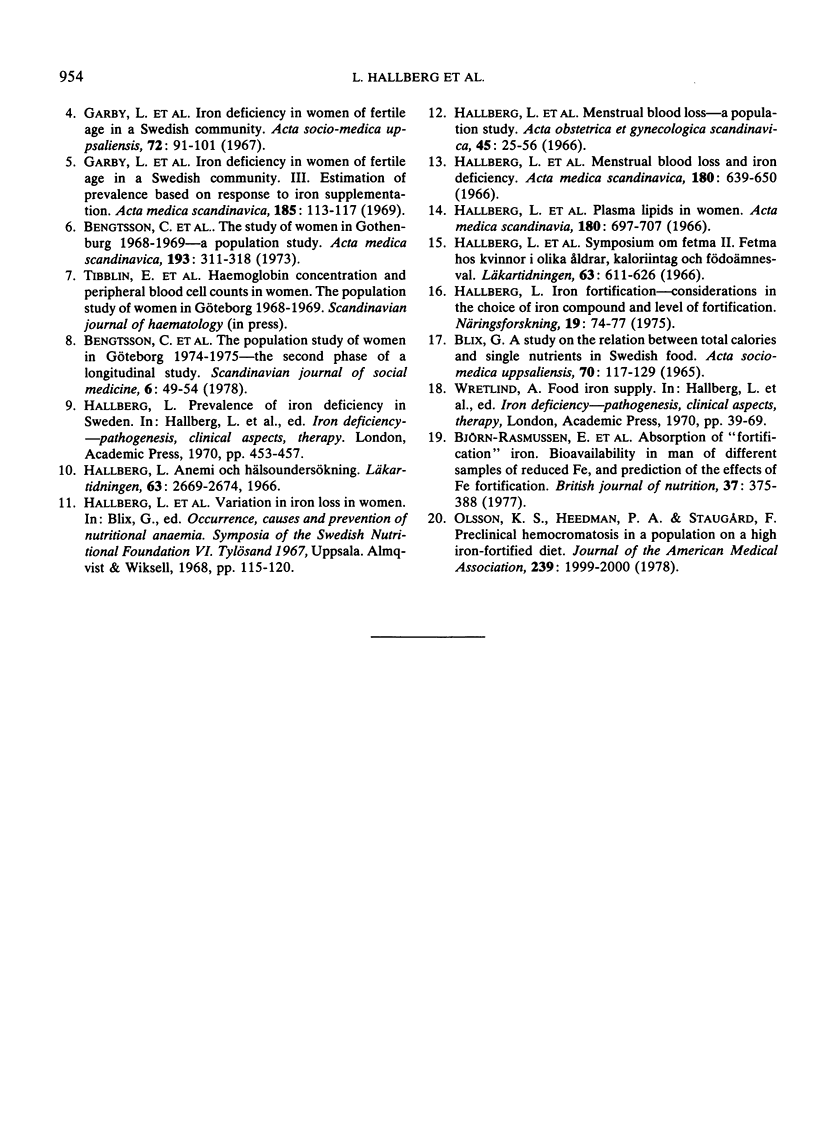
Selected References
These references are in PubMed. This may not be the complete list of references from this article.
- Bengtsson C., Blohmé G., Hallberg L., Hällström T., Isaksson B., Korsan-Bengtsen K., Rybo G., Tibblin E., Tibblin G., Westerberg H. The study of women in Gothenburg 1968-1969--a population study. General design, purpose and sampling results. Acta Med Scand. 1973 Apr;193(4):311–318. doi: 10.1111/j.0954-6820.1973.tb10583.x. [DOI] [PubMed] [Google Scholar]
- Bengtsson C., Hallberg L., Hällström T., Hultborn A., Isaksson B., Lennartsson J., Lindquist O., Lindstedt S., Noppa H., Redvall L. The population study of women in Göteborg 1974--1975--the second phase of a longitudinal study. General design, purpose and sampling results. Scand J Soc Med. 1978;6(2):49–54. doi: 10.1177/140349487800600201. [DOI] [PubMed] [Google Scholar]
- Björn-Rasmussen E., Hallberg L., Rossander L. Absorption of 'fortification'iron. Bioavailability in man of different samples of reduced Fe, and prediction of the effects of Fe fortification. Br J Nutr. 1977 May;37(3):375–388. doi: 10.1079/bjn19770041. [DOI] [PubMed] [Google Scholar]
- Blix G. A study on the relation between total calories and single nutrients in Swedish food. Acta Soc Med Ups. 1965;70(3):117–129. [PubMed] [Google Scholar]
- Garby L., Irnell L., Werner I. Iron deficiency in women of fertile age in a Swedish community. 3. Estimation of prevalence based on response to iron supplementation. Acta Med Scand. 1969 Jan-Feb;185(1-2):113–117. doi: 10.1111/j.0954-6820.1969.tb07305.x. [DOI] [PubMed] [Google Scholar]
- Garby L., Irnell L., Werner I. Iron deficiency in women of fertile age in a Swedish community. I. Distribution of packed cell volume and the effect of iron supplementation. Acta Soc Med Ups. 1967;72(1):91–101. [PubMed] [Google Scholar]
- Gardner G. W., Edgerton V. R., Senewiratne B., Barnard R. J., Ohira Y. Physical work capacity and metabolic stress in subjects with iron deficiency anemia. Am J Clin Nutr. 1977 Jun;30(6):910–917. doi: 10.1093/ajcn/30.6.910. [DOI] [PubMed] [Google Scholar]
- Hallberg L. Hälsokontroll. 8. Anemi och hälsoundersökning. Lakartidningen. 1966 Jul 13;63(28):2669–2674. [PubMed] [Google Scholar]
- Hallberg L., Högdahl A. M., Nilsson L., Rybo G. Menstrual blood loss and iron deficiency. Acta Med Scand. 1966 Nov;180(5):639–650. doi: 10.1111/j.0954-6820.1966.tb02880.x. [DOI] [PubMed] [Google Scholar]
- Hallberg L., Högdahl A. M., Svanborg A., Vikrot O. Plasma lipids in women. Variation in cholesterol, phospholipids and triglycerides at different ages in a random population sample. Acta Med Scand. 1966 Dec;180(6):697–707. [PubMed] [Google Scholar]
- Olsson K. S., Heedman P. A., Staugárd F. Preclinical hemochromatosis in a population on a high-iron-fortified diet. JAMA. 1978 May 12;239(19):1999–2000. [PubMed] [Google Scholar]


